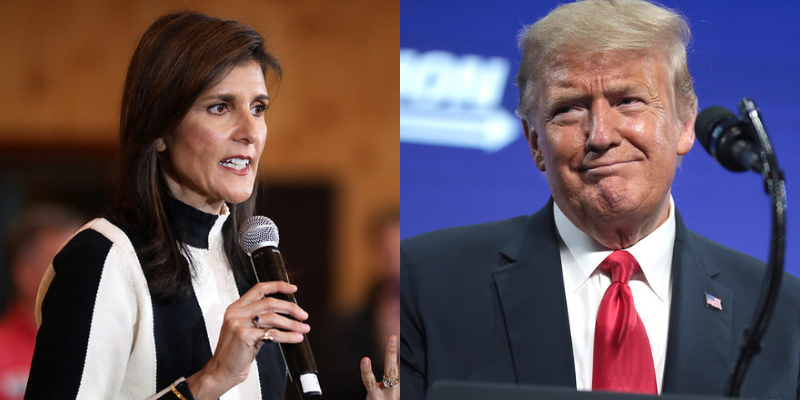
“FOX SHOCK: 35% OF REPUBLICANS WILL NOT VOTE FOR THE DON!” That was the headline at the top of Wednesday morning’s Drudge Report, right below the following Fox News graphic:

This analysis of New Hampshire Republicans even made it onto Fox and Friends, where Steve Doocy presented it as a big warning sign for Trump. “But here’s the problem for the former president,” he said on the conservative morning show, “35% of Republicans said they would not vote for Donald Trump.”
While those exit poll findings are receiving a lot of media attention, the idea that one-third of Republicans in New Hampshire or any other state won’t vote for Trump in November is downright laughable. After all, he was in a much weaker position with the Republican electorate this time eight years ago – and went on to win nearly 90% of both the 2016 GOP vote and 2012 Romney voters against Hillary Clinton in the general election.
Civiqs’ daily tracking polls, for example, show that only about 60% of Republicans had a favorable opinion of Trump in late January 2016. Trump’s GOP support climbed up to the low-90s after he defeated Clinton. There it held steady throughout presidency; his current favorability rating among Republicans is now at or near 80% in both Civiqs’ data and in FiveThirtyEight’s polling average.
It’s not surprising, then, that Trump is beating Biden by over 80 percentage points among Republicans (86% to 4%) in this week’s YouGov-Economist poll. Nor is it a surprise that his GOP support was even stronger in Quinnipiac’s December polling, where 93% of Republicans preferred him in a head-to-head trial heat against Biden.
The anomalous results out of New Hampshire, by contrast, fit a familiar pattern in which responses to exit poll questions “are mainly post hoc rationalizations,” as political scientists Brendan Nyhan and James Stimson have explained. That is, many of Haley’s supporters were likely reaffirming their primary votes by saying that they won’t support Trump in November.
The vast majority of Haley’s supporters who identify as Republicans, however, will almost certainly back Trump after he is increasingly contrasted with Biden (rather than Haley) over the course of the election year. Indeed, political science research shows that the general election campaign often activates partisan loyalties and leads disaffected primary voters to support their party’s nominee in November.



